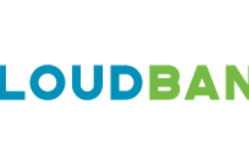Savvy consumers know they shouldn’t pay too much for banking services (after all, that is how banks make money).
That’s why a record number of Americans are turning to credit unions for their banking needs.
A lot of this has had to do with efforts to encourage consumers to move their money from big banks charging fees to smaller financial institutions, such as credit unions.
If you’re looking for a checking account, an auto loan or another banking service, be sure to consider credit unions in your search.
Credit unions are similar to banks, and they offer many of the same financial services. You will often find that credit unions have better rates and customer service.
However, credit unions have a few features that may seem a bit odd to those who have only used banks.
Credit Union Members vs. Customers
An important difference between a credit union and a bank is that you are not a customer at a credit union.
At a credit union, you are a member of a not-for-profit institution with the right to vote for the credit union’s board of directors.
The board oversees the credit union management and has a say in setting rates and policies.
This is an important distinction.
Joining a Credit Union
The membership feature of credit unions will often be the first difference an individual will see when comparing credit unions vs banks.
Most credit unions have a membership requirement in order to be eligible to join. Each credit union has a field of membership (FOM) as part of its charter which defines who is eligible to join.
The FOM might allow only employees of certain companies to qualify. Many credit unions now have community-based FOMs that allow anyone who lives or works in certain areas to join. There are also FOMs based on membership in certain associations.
An example of this is PenFed, a military affiliated credit union that requires members be current or former military members, or be a member of certain military-affiliated organizations.
Once you have determined that you are eligible, you can apply for membership. It’s very common for credit unions to require that you open a savings account.
This is typically called a share account since it represents part ownership of the credit union. You must maintain the share account with a minimum balance to remain a member.
The minimum balance that is required is rarely more than $25.
Account Differences From Credit Unions & Banks
Once you’re a member, a credit union will look a lot like a bank. You have access to all types of accounts like checking accounts and certificates of deposit.
One small difference you may notice at a credit union is in the names that are used.
As mentioned above, the name “share account” is often used instead of the name “savings account” since it represents part ownership of the credit union.
A “checking account” will often be called a “share draft” and a “certificate of deposit” may be called a “share term certificate.”
Also, instead of earning interest on these accounts, you earn dividends.
The names may be different, but from all practical purposes, there is no difference. Dividends are paid out in the same way banks pay out interest.
However, at credit unions you can sometimes receive a special dividend at the end of the year.
If a credit union has a good financial year, it will distribute profits to its members in the form of special dividends on savings or credits to members’ loan accounts.
Perceived Advantages of Credit Unions
Many consumers see perceived benefits in joining a credit union. For one thing, many credit unions still offer fee-free accounts.
However, it’s important to realize that just because you are using a credit union it doesn’t mean that you won’t pay any fees.
The local credit union I belong to recently announced that it is adding a monthly checking account fee, which can be waived if you maintain a minimum balance. I don’t have a checking account there, so it doesn’t affect me.
But it’s important to be on your toes, since there are some credit unions that charge account fees.
Another advantage many people cite is the favorable interest rates. In many cases, credit union members can get lower interest rates on car loans and home loans.
It’s also possible in some cases to see lower interest rates on personal loans and credit cards. The lowest-interest credit card I have is the one from the credit union.
However, some low-interest credit cards may not have rewards, which may be important to you. Make sure you shop around before getting a loan. In many cases, the credit union will have the lowest rates, but it’s not guaranteed.
Credit unions also might offer higher yields on interest bearing accounts.
You might be able to get better yields on CDs, money market accounts, and savings accounts than what you can find at a competing bank. Sometimes, though, the yields offered by online banks can be even better than those of your local credit union.
Before you decide where to put your money, check online as well as with what is offered by your local credit union.
Things to Keep in Mind Before Joining a Credit Union – Access & Convenience
It’s also important to address some of the perceived disadvantages of credit unions. First of all, credit unions, due to their nature, have membership requirements.
Many of these requirements have been relaxed. USAA is a good example of a financial institution that has relaxed its previous membership requirements.
Other credit unions have wide field of membership requirements that allow most people to join. Just make sure that you eligible before you try to open an account.
Another consideration is access. The vast majority of credit unions are small institutions with just a few branches. There are no giant credit unions with the size of Bank or America or Wells Fargo or Chase Bank.
You might think this is a major downside as compared to the mega-banks that have branches and ATMs throughout the country.
However, credit unions have developed a way to compete on this issue. Many credit unions are part of ATM networks that give you surcharge-free access to thousands of ATMs throughout the U.S. as well as shared branch networks.
When you belong to a credit union with a large ATM network, you can access your money fee-free.
In some cases, the credit union coop will offer shared branch networks.
The most common one, the CU Service Centers network, has thousands of credit union branches throughout the U.S. At a shared branch you can perform many banking transactions just as if you were at your home credit union such as making deposits, withdrawals, and loan payments.
Finally, you want to make sure any credit union is covered by the National Credit Union Administration (NCUA), which is similar to FDIC insurance.
Deposit Insurance Differences
At U.S. banks, your deposits are insured up to at least $250,000 by the Federal Deposit Insurance Corporation (FDIC). The FDIC is an independent agency of the United States government. FDIC insurance is backed by the full faith and credit of the United States government.
Credit unions are not insured by the FDIC. The vast majority are insured by the National Credit Union Administration (NCUA). Like the FDIC, the NCUA is an independent agency of the United States government, and its insurance is backed by the full faith and credit of the United States government. The insurance limits are the same as those from the FDIC.
It’s important to note that not all credit unions are federally insured by the NCUA. Some state-chartered credit unions only have private share insurance.
These are rare and are only in certain states that allow their state-chartered credit unions to have private insurance.
Still, it’s worth noting whether or not your deposits are insured.
Do Credit Unions Offer the Best Deals?
As not-for-profit institutions, credit unions are not out to turn a profit. Instead credit unions can return earnings to the members in the form of better rates and lower fees.
Also, credit unions are exempt from many taxes that banks have to pay. Due to these aspects, you can often find better deals at credit unions than at banks.
However, this isn’t always the case. The profit drive of banks can sometimes lead to better products and more conveniences.
This is especially true with internet banks. When deciding between banks or credit unions, it doesn’t have to be all or nothing.
There’s no reason why you can’t have some accounts at credit unions and some at banks. Look for the best deals, and remember to include credit unions in your search.
Should You Join a a Credit Union?
A credit union isn’t right for everyone, but it can be a good choice for many people.
Carefully consider your options, and then choose a financial institution that works best for you.



Comments:
About the comments on this site:
These responses are not provided or commissioned by the bank advertiser. Responses have not been reviewed, approved or otherwise endorsed by the bank advertiser. It is not the bank advertiser’s responsibility to ensure all posts and/or questions are answered.
Roberta Miller says
Can the Federal Government seize an IRA of 401K retirement account when deposited in a Credit Union?
John says
Been a CU member for over 10 years, ever since the last financial downturn. I rarely go to my local CU branch, maybe once a year to deposit a bunch of coins (no fees) that I’ve collected throughout the year.
I refinanced my mortgage and my car loan with my CU and saved over $100k in interests alone. Best financial move I’ve ever made 🙂
Annie August says
I honestly prefer a credit union over big banks. For me, a credit union is a lot easier to deal with compared to banks and the folks at Oak Trust in Plainfield, Illinois just make the experience even better.
Moneyedup says
I found this article to be really informative and it explained the differences between credit unions and banks really clearly. I would be a little hesitant to include credit unions in my search for the right account or service, but knowing that the NCUA’s insurance is backed by the US government in the same way that the FDIC’s is very helpful to know.
myfinancialobjectives says
Nice post. I really did not know all the differences between a credit union and banks. I’m thinking of joining Navy Federal Credit union. one H U G E benefit they have is a $0 down mortgage with supposedly not PMI insurance. I have to look more into that, but I’d love to see a traditional bank match that!
Kerri says
Nice blog! One aspect that people don’t think about is that when you put money in mega-banks the money may not be reinvested in the community in which you live. For credit unions, the money in most cases is put back into the community through loans.